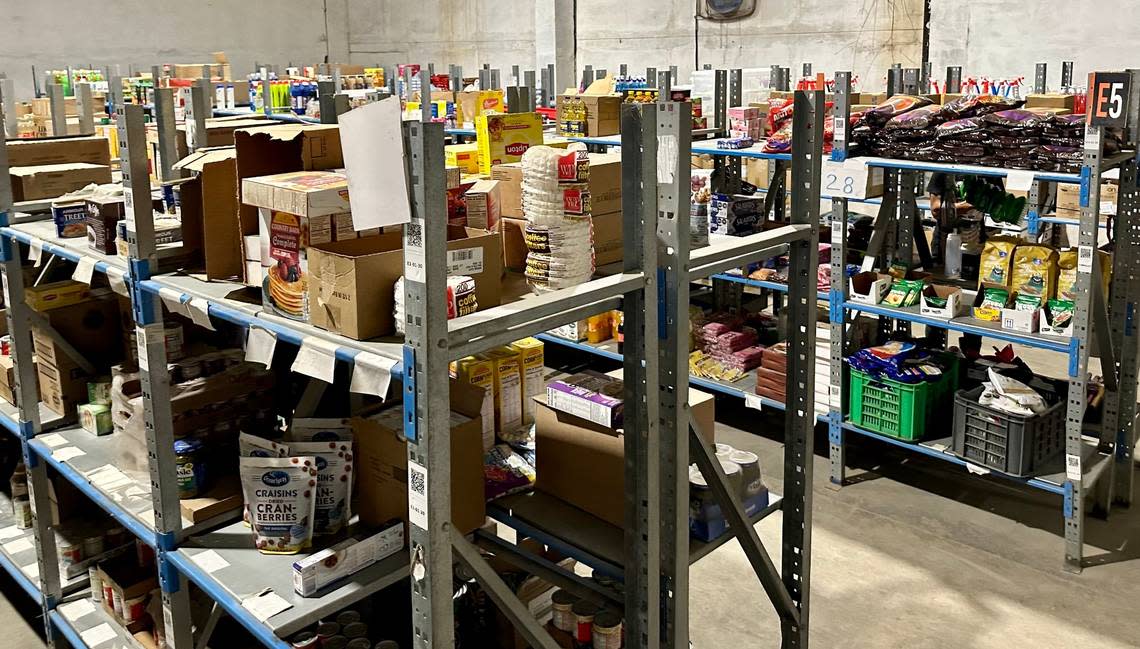Despite worsening economy, Cuba announces crackdown on growing private sector

- Oops!Something went wrong.Please try again later.
The growth of Cuba’s emerging private sector will likely halt if the government enacts new measures announced by the country’s prime minister during a National Assembly address in which he blamed the businesses for evading taxes and tapping into foreign currency that once went to government coffers.
Prime Minister Manuel Marrero announced Wednesday that private businesses will have to pay for imports “from accounts in Cuban banks,” saying the measure he said will be implemented “gradually” but giving no other details.
The measure would effectively prevent many enterprises from staying in business because the government does not sell foreign currency to them, and no current mechanism allows a private company to use the Cuban banking system to transfer foreign currency abroad to pay overseas suppliers.
Currently, these companies are not allowed to import directly. They must use a state importing agency as an intermediary. To pay providers abroad, some business owners use bank accounts in third countries. Others have been buying dollars on the black market and using intermediaries such as small money-transfer agencies that pay providers abroad on their behalf.
To address the issue and support the private sector, the Biden administration changed the regulations on the U.S. embargo in May to allow Cuban private business owners to open accounts in U.S. banks, although banks have yet to follow through.
The new requirement by Cuba forcing businesses to use Cuban banks for payment seems to be a response to the Biden administration measures, even though initially Cuban diplomats said the island’s government would not oppose it.
“Do you want to import? Well, you’re going to have to use Cuban bank accounts,” the prime minister said with a faint smile.
Marrero also said private enterprises will be required to certify the origin of the money they use to pay for imports, customs fees and port duties in dollars. They will also be required to get authorization from municipal governments to sell goods or services outside their province of residence. The latter measure, he said, would ensure the businesses do not expand over the current 100-employee limit.
The government will also increase monitoring of the bank accounts linked to these enterprises and their owners for tax purposes.
Just three years after they were first allowed in 2021, small and medium enterprises have become significant importers of food and other essential goods, filling the gap left by the cash-strapped government and providing a lifeline to many Cuban families. They also provide various services, from construction and transportation to senior care and software programming.
According to figures shared by Marrero in a PowerPoint presentation, the private sector, including self-employed workers and cooperatives, accounts for 20 percent of the country’s GDP. Private enterprises imported $1.3 billion in goods in 2023 and $936 million so far this year as of June.
Their rapid growth has occurred despite the economy’s lagging recovery from the COVID-19 pandemic and an almost 2% overall economic contraction last year, according to recent official figures.
But Marrero portrayed such economic activity in a negative light, accusing the private businesses of evading taxes, driving the price of the dollar up and taking in the foreign currency that used to go to the government.
The private sector’s “financial and commercial activity…creates an uncontrollable demand for foreign currency,” he said. “You may say it is good that they import and bring things. Yes, if they paid taxes, if they sold and marketed it at fair prices to the people. But this is not really the case, so this is why it must be controlled, regulated — [though] not prohibited.”
Since last year, when the government announced the elimination of tax incentives for the private sector and ordered businesses to stop accepting cash as payment, it became clear that some groups in the Cuban leadership were feeling uneasy with the private sector’s unexpected growth, despite the many government-imposed restrictions they were already facing.
Hardliners have grown worried that the experiment with capitalism could threaten the government’s tight grip on power, and the Cuban military, which used to control most foreign currency coming into the island, is viewing these companies as competition, sources in Cuba said.
Earlier this year, the government started auditing private businesses, even arresting some business owners, amid accusations of corruption, tax evasion and price speculation. Earlier this month, it imposed caps on some food and goods sold in private stores and limited the amount state companies can pay to private businesses providing supplies or services.
But Marrero’s address made clear the extent to which the government is going after these businesses in what he says is not a “crusade” against the private sector but an effort to clamp down on tax evasion.
He said government inspectors fined more than 1,000 enterprises and 63,000 self-employed workers for tax evasion and shut down 20 businesses. Following the imposition of price caps, he said, the government mobilized around 7,000 inspectors to ensure compliance by private business owners. In just two days, he added, they imposed over 4,300 fines worth over 13 million Cuban pesos.
Ultimately, he said, the government wanted to make sure that it was property implementing guidelines approved by the Communist Party, so the private sector plays its “assigned role” as a complement to state enterprises, which sometimes, he said, has not been the case.
“This is why we have to strengthen the socialist state economy,” Marrero said.

